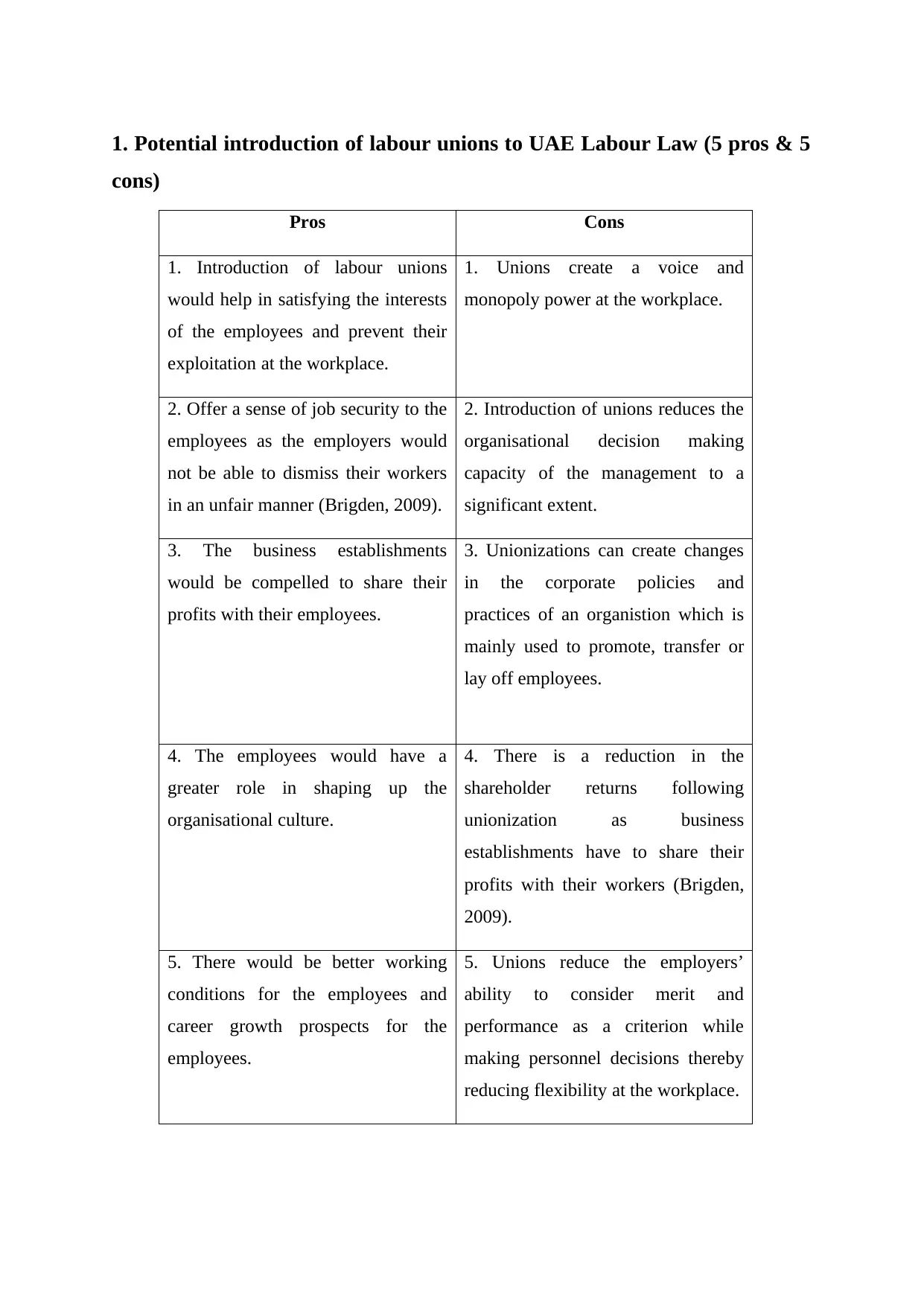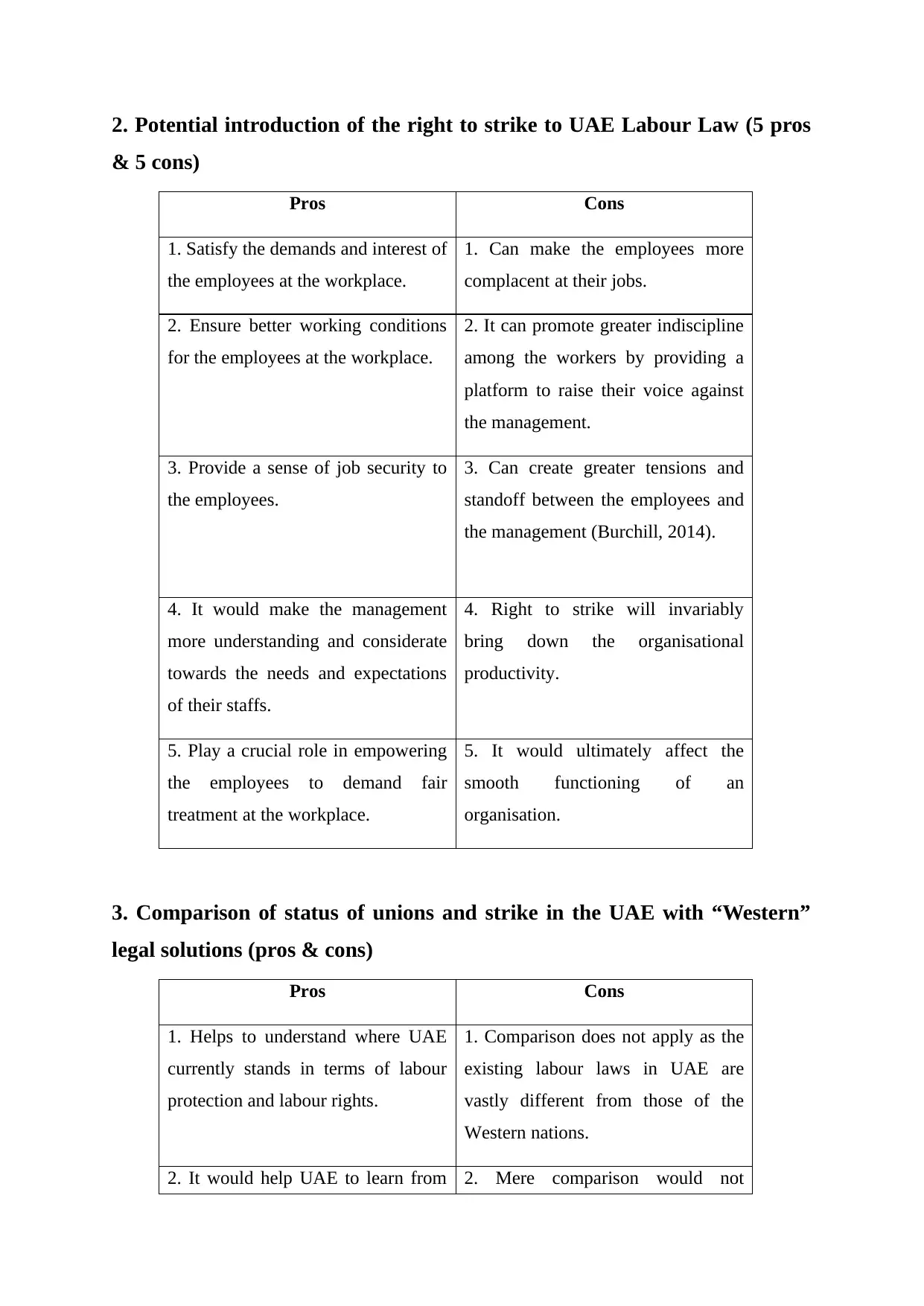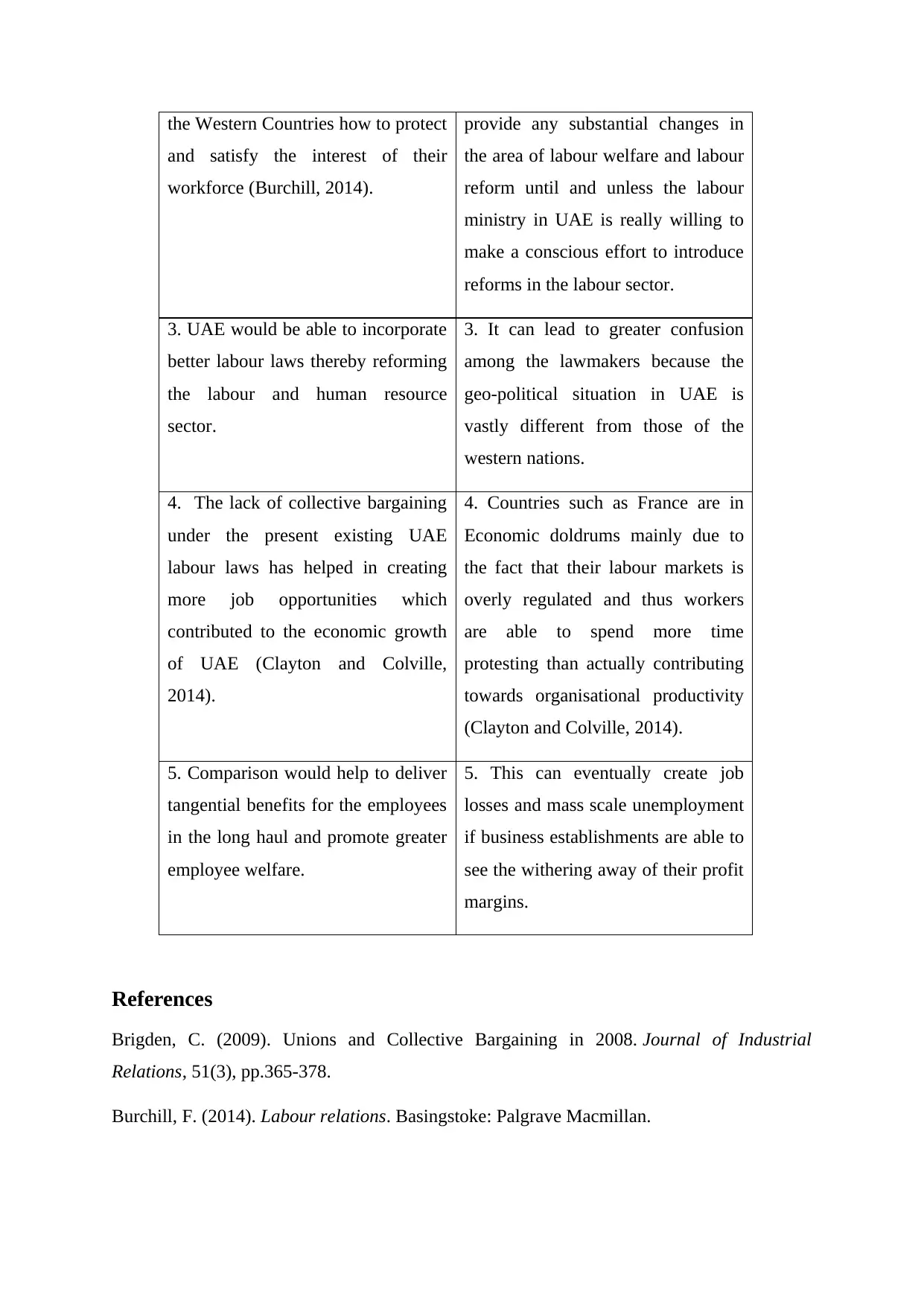Examining Unions and Strike Rights: Implications for UAE Labour Law
VerifiedAdded on 2023/06/13
|5
|831
|370
Report
AI Summary
This report examines the potential introduction of labor unions and the right to strike into UAE Labour Law, presenting five pros and cons for each. It explores the benefits of unions in providing a voice for employees, ensuring job security, and improving working conditions, while also considering the potential for creating monopoly power, reducing organizational decision-making capacity, and impacting profitability. Similarly, the analysis of the right to strike highlights its potential to satisfy employee demands and empower fair treatment but acknowledges risks such as reduced productivity and increased tensions between employees and management. Furthermore, the report compares the UAE's current status regarding unions and strikes with "Western" legal solutions, weighing the advantages of learning from Western countries against the challenges of applying those models to the unique geopolitical situation of the UAE. The report concludes by referencing relevant academic sources to support its analysis of labour unions and right to strike.
1 out of 5












![[object Object]](/_next/static/media/star-bottom.7253800d.svg)